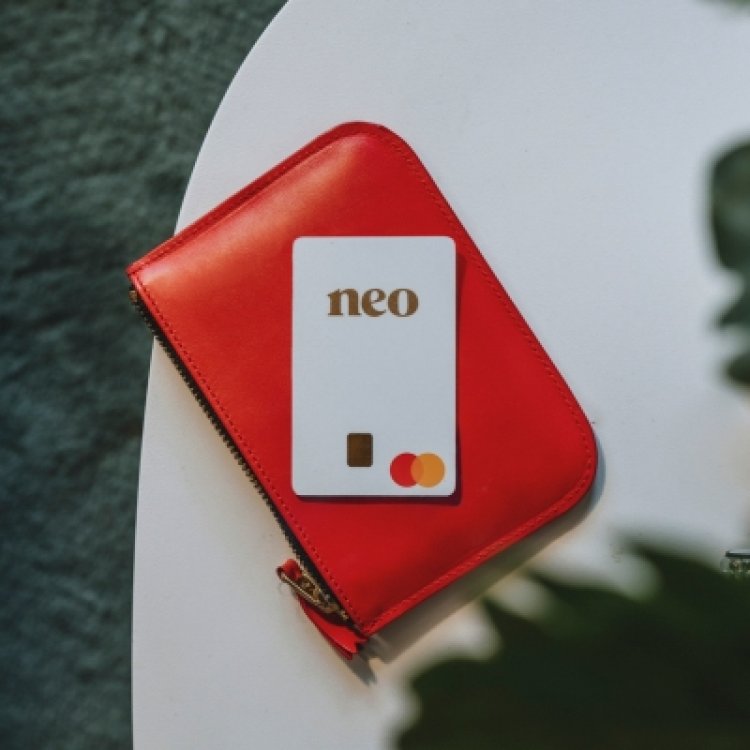Canada’s Neo Financial closes on $145M Series C, surpasses 1 million customers
Canadian digital bank Neo Financial has raised $145.2 million (CAN$185 million) after surpassing the 1 million customer mark, the company announced today. Valar Ventures led the investment, which brings Neo’s total funding to $234.7 million (CAN $299 million) since its 2019 inception, and values the company at over $784.8 million. In Canadian dollars, this means that […]

Canadian digital bank Neo Financial has raised $145.2 million (CAN$185 million) after surpassing the 1 million customer mark, the company announced today.
Valar Ventures led the investment, which brings Neo’s total funding to $234.7 million (CAN $299 million) since its 2019 inception, and values the company at over $784.8 million. In Canadian dollars, this means that Neo has achieved unicorn status, or a valuation of over $1 billion. Also participating in the round were Tribe Capital, Altos Ventures, Blank Ventures, Gaingels, Maple VC and Knollwood Advisory.
Neo Financial offers a variety of products to its customers, including cash-back rewards and savings. It expanded into investing in April with a private wealth management product, and plans a mortgage offering for later this year as part of its effort to be a “one-stop shop for all financial services for Canadians and retailers.”
Maple VC’s Andre Charoo told TechCrunch that the startup has returned (unrealized) one-third of the firm’s second fund so far. Maple is based in San Francisco, but focuses on investing in founders with Canadian roots.
“Neo is the fastest growing company I have seen in Canada…” he wrote via email. “I believe Neo has a shot at owning at least 10% of the aggregated $550B banking sector in Canada (ie. $50B) due to the network effects it has created with its unique merchant loyalty program.”
Indeed, the company says that its partnerships, which include Hudson’s Bay, The Home Depot, H&R Block, Boston Pizza, Goodfood and 7,000 other local and national retailers, have accelerated in the past year, “as retailers search for ways to modernize their loyalty programs and financial service offerings.”
Neo has also expanded beyond just offering personalized loyalty card programs and into launching co-branded card programs, “buy now, pay later” options (BNPL), point of sale installment financing and subscription-based loyalty services for both online and brick and mortar retailers.
In an interview with TechCrunch, Neo co-founder and CEO Andrew Chau shared that he and co-founders Jeff Adamson, Chris Simair and Kris Read started Neo to challenge the Big Five banks that own some 90% of the country’s market share. Notably, it only went live in January of 2021, so it has managed to surpass 1 million customers in a relatively short period of time.
“Yes, we have all of the great products and features and seamlessly integrated experiences which is actually not very common here in Canada because the regulatory market is different here. There aren’t 6,000 regional banks,” Chau told TechCrunch. “We’ve built all our financial infrastructure, our banking core, from scratch. And that really provided us with this advantage to quickly innovate and drive a ton of product velocity.”
Chau, Adamson and Simair all also co-founded SkipTheDishes, which Chau says has gone on to become the “largest food delivery network in Canada,” with 3,000 employees; it was acquired by Just Eat for approximately $86 million.
Looking ahead, Neo plans to use its new funding to continue building new products and features. Presently, the startup has over 650 employees and will also use its new capital to hire another 100 more or so people at its Winnipeg and Calgary campuses.
In addition to the funding round, the company said it also offered a secondary share sale so that early investors and employees could cash out by selling a portion of their shares to new investors.
For his part, Valar Ventures’ Andrew McCormack said that financial services companies can “leverage whatever technologies they want to provide better customer experiences.”
“At the same time, the incumbent banks are stuck with their mainframes, IBM contracts, and software written in COBOL,” he wrote via email.” It’s hard to make reactive, intelligent products with that.”







